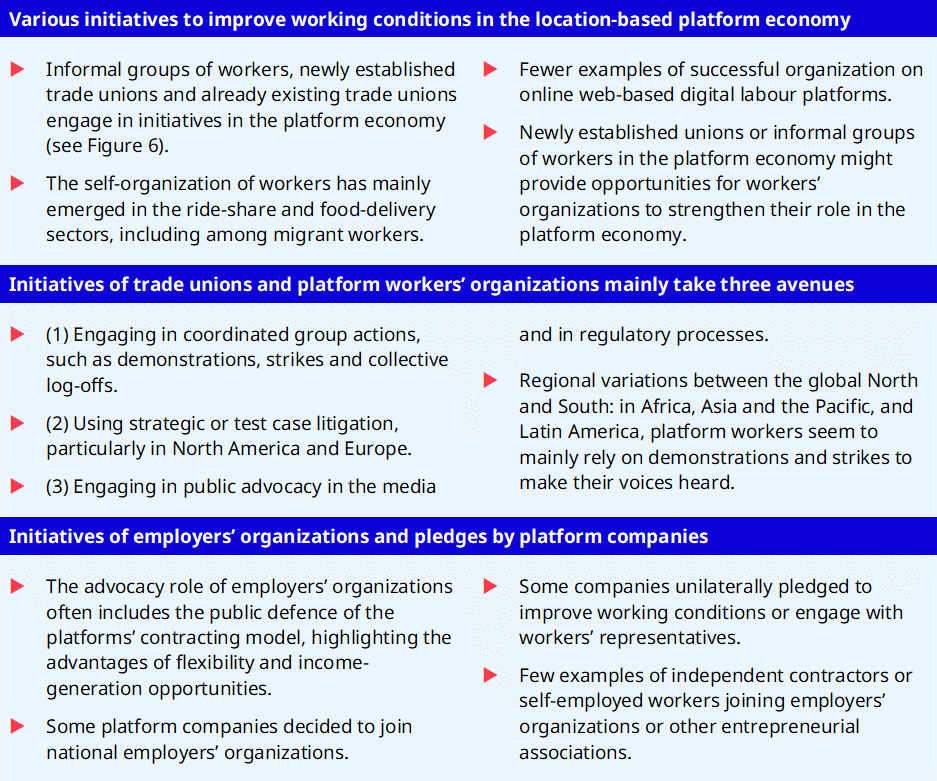By Dr. Gyan Pathak
Yet to be fully implemented resolution “the Transition from the Informal to the Formal Economy Recommendation, 2015 (No. 204)” adopted by the International Labour Conference (ILC) of the International Labour Organization (ILO) even after 10 years of its adoption, gets another resolution in its support on June 13, 2025, at ILC’s 113th session held during June 2-13, 2025, while the International Convention on Decent Work in Platform Economy was deferred for 114th session to be held in 2026.
Nevertheless, the new resolution adopted for accelerated implementation of the 10 years old resolution of 2015, says that informality remains high and persistent, and is increasing in some countries, which is unacceptable. The informal economy accounts for close to six out of ten workers and eight out of ten enterprises in the world.
It has been stated in the latest adopted resolution while informality is more prevalent in low- and middle-income countries, the informal economy exists in all parts of the world, including in high-income countries. Although the share of workers in the informal economy is declining globally, the numbers of informal economy workers continue to grow in absolute terms. For most workers and economic units, entering the informal economy is not a choice but a consequence of a lack of opportunities in the formal economy and the absence of other means of livelihood.
It is worth noting that the 2015 resolution provides comprehensive policy guidelines for addressing the root causes of informality, recognizes the diversity of the informal economy across and within countries and calls for integrated approaches tailored to national circumstances and based on social dialogue.
The new resolution noted that informality is one of the structural barriers to advancing decent work, social justice and sustainable development. It hinders progress in reducing poverty and inequality and presents significant challenges for the realization of workers’ rights, including the fundamental principles and rights at work, effective labour protection, and universal access to comprehensive, sustainable, effective and adequate social protection. It also undermines the rule of law, hinders productivity and has a negative impact on the development of sustainable enterprises, public revenues, governments’ scope of action, the soundness of institutions and air competition in national and international markets.
Informality is a complex, structural and evolving challenge that affects diverse forms of work arrangements across informal economic units, formal enterprises and households, the resolution read. Own-account workers, those in non-standard forms of work, micro and small economic units and certain sectors, might be disproportionately at risk of informality.
Women as well as groups in situations of vulnerability, including young people, older people, migrants, refugees, Indigenous and Tribal Peoples, persons with disabilities, care and support workers, domestic workers, home-based workers, street vendors, recycling workers and waste pickers, construction and mine workers, and rural and agricultural workers, are often at higher risk of informality and face specific barriers to formalization.
Drivers of informality are multifaceted and interrelated. Their relative importance differs considerably between countries, workers and economic units as well as sectors. Drivers of informality are cross-cutting and specific to particular groups of workers or categories of economic units, the resolution said while enumerating the main drivers of informality.
For transition from informal to formal decent work, the resolution has suggested many ways and means, many of them are based on the lessons learnt during the implementation of the last resolution which is yet to be implemented fully. It says that new digital economy can provide effective tool to facilitate the transition to formality, prevent informalization and strengthen compliance systems against labour law violations, while respecting applicable data protection laws.
Similarly, increased access to domestic and global markets through supply chains may, when accompanied by effective regulation and an enabling environment for transition to formality, help to integrate informal economy workers and economic units into the formal economy. Responsible business conduct, including due diligence, can further contribute to formalizing work in supply chains.
Formalization should be pursued through three complementary channels, it says (a) facilitate the transition of workers and economic units from the informal to the formal economy, while respecting workers’ fundamental rights and ensuring opportunities for income security, livelihoods and entrepreneurship; (b) promote the creation, preservation and sustainability of enterprises and decent jobs in the formal economy and the coherence of macroeconomic, employment, social protection and other social policies; and (c) prevent the informalization of formal economy jobs.
Integrated comprehensive, coordinated strategies combining national, local and sectoral approaches – as set out in Recommendation No. 204 – are the most effective in tackling the multiple drivers of informality and promoting the transition to formality, while achieving desired outcomes.
It enumerates four pillars for transition to decent work – Good governance and integrated strategies, Labour Organization’s and economic unit’s voices, an enabling environment for accelerated transition, and better working and living conditions.
In a separate resolution adopted the same day on “Decent work in the platform economy” it was decided that it would be included in the agenda of the 114th session to be held in 2026, owing primarily to lack of time, for a second discussion with a view to the adoption of a Convention supplemented by recommendation. (IPA Service)


 INDIA Bloc Parties Start Preparatory Work For Seat Sharing Talks In Bihar Polls
INDIA Bloc Parties Start Preparatory Work For Seat Sharing Talks In Bihar Polls 